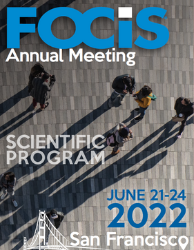AMT-126: A Novel Oral GI-selective Fusion Protein Delivering IL-22 to Support Mucosal Homeostasis and Epithelial Barrier Integrity

Kyler A. Lugo, PhD
Senior Scientist, Biomarkers
Applied Molecular Transport
South San Francisco, California, United States.jpg)
Silvia Gregori
Group Leader
San Raffaele Telethon Institute for Gene Therapy (SR-Tiget), San Raffaele Scientific Institute
Milan, Lombardia, Italy
Presenting Author(s)
Chair(s)
Background: IL-22 is a pleiotropic cytokine that mediates epithelial barrier integrity and mucosal homeostasis. In the intestine, it is produced largely by lymphocytes in response to proinflammatory cytokines and acts to induce epithelial cell proliferation, tight junction formation, and mucins & anti-microbial peptides production. IL-22 KO mice have weakened intestinal barriers, increased susceptibility to pathogens, and altered microbiome compositions, all of which can be reversed by providing exogenous IL-22. Treatment with parenteral human IL-22 in healthy volunteers, ulcerative colitis, and graft-versus-host disease patients shows clinical benefit but is associated with skin and mucosal toxicity.
Approach: AMT-126 is a fusion protein of IL-22 and a carrier protein that mediates transcytosis through intestinal enterocytes into the lamina propria. Pre-clinical studies demonstrate that oral or colonic delivery of AMT-126 provides gut-selective exposure of biologically active IL-22 with minimal systemic pharmacokinetics (PK). In murine dextran sulfate sodium (DSS)-induced colitis, oral AMT-126 suspension attenuated overall disease severity. In non-human primates, oral dosing or colonic spray of AMT-126 showed little/no systemic PK, but pharmacological effects (4-hour fold induction vs. baseline: Reg3a – 1.8x; CRP – 10x; IL1Ra – 50x) comparable to those seen with parenteral delivery of IL-22. In all animal studies, AMT-126 was well tolerated with no adverse findings at any dose level.
Conclusion: IL-22 is a clinically validated cytokine used to improve mucosal homeostasis but leads to toxicity when delivered intravenously. In vivo, AMT-126 (oral gut-selective IL-22 fusion protein) induces IL-22-associated mucosal repair mechanisms in the absence of toxicity, supporting advancement into the clinic.

